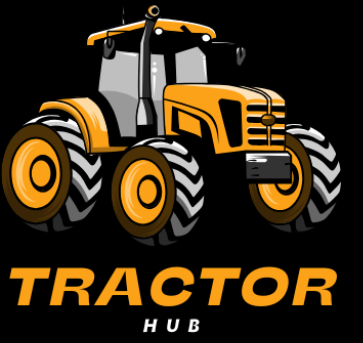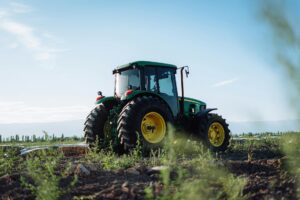Owning and operating a commercial tractor, whether for farming, logistics, or construction, is a significant investment. With that investment comes risk—risks of accidents, theft, weather damage, and liability lawsuits. That’s why securing the right commercial tractor insurance policy is essential for protecting your equipment, your business, and your livelihood.
In this detailed guide, we will explore everything you need to know about commercial tractor insurance policy quotes, including:
-
What commercial tractor insurance covers
-
Factors affecting insurance quotes
-
How to get the best policy rates
-
The difference between types of tractor insurance
-
A comparison of top insurance providers
-
Frequently asked questions
Whether you’re a first-time buyer or looking to renew or compare your existing policy, this guide is your complete resource for making an informed decision.
1. What Is Commercial Tractor Insurance?
Commercial tractor insurance is a specialized form of commercial vehicle insurance designed to protect tractors used for business operations. This includes:
-
Farm tractors
-
Tractor-trailers used for freight transport
-
Construction tractors such as backhoes or excavators
-
Utility or lawn tractors for landscaping businesses
The policy typically includes both physical damage coverage and liability protection, ensuring that owners are financially protected in case of accidents, property damage, or third-party injuries.
2. Why Is Commercial Tractor Insurance Necessary?
There are many reasons to secure commercial tractor insurance:
A. Legal Compliance
In many states, tractors used on public roads or for commercial purposes are legally required to carry insurance, especially for liability coverage.
B. Financial Protection
Tractors can cost anywhere from $25,000 to over $300,000. Insurance helps recover losses due to:
-
Accidents
-
Fire
-
Theft
-
Vandalism
-
Natural disasters
C. Business Continuity
Without insurance, a single mishap could cost thousands of dollars or result in downtime, threatening your revenue stream and long-term sustainability.
3. What Does Commercial Tractor Insurance Cover?
Coverage may vary depending on the provider and policy type, but most commercial tractor insurance includes the following:
A. Liability Insurance
-
Bodily Injury Liability: Covers injury to other people if you’re at fault in an accident
-
Property Damage Liability: Covers damages to another vehicle or structure
B. Physical Damage Coverage
-
Collision Coverage: Pays for tractor damage due to a collision
-
Comprehensive Coverage: Covers non-collision damages such as theft, fire, weather, or vandalism
C. Uninsured/Underinsured Motorist Coverage
Protects you in case you’re hit by someone who doesn’t have enough insurance or has none at all.
D. Medical Payments or Personal Injury Protection (PIP)
Covers medical expenses for you and your passengers regardless of fault.
E. Cargo Insurance (For Tractor-Trailers)
If you’re hauling goods, cargo insurance protects the load in transit.
F. Roadside Help and Towing
Optional coverage that offers support during breakdowns or emergencies on the road.
4. Different Types of Tractor Insurance
1. Farm Tractor Insurance
Covers agricultural tractors used for tilling, planting, and harvesting. Common in rural areas, this insurance may also extend to other farming equipment.
2. Commercial Truck/Tractor-Trailer Insurance
Essential for logistics companies and independent owner-operators. Often includes:
-
Motor truck cargo coverage
-
Non-trucking liability (bobtail insurance)
-
Trailer interchange insurance
3. Construction Tractor Insurance
Includes heavy machinery such as excavators, backhoes, and skid-steers. Often bundled under contractor’s equipment insurance.
5. Factors That Affect Commercial Tractor Insurance Quotes
Several key factors influence the cost of your policy:
A. Type and Usage of Tractor
-
Farm use vs. long-haul trucking
-
Frequency of use
-
Terrain and operational environment
B. Tractor Value
Higher-value tractors will have higher premiums due to more costly repairs and replacements.
C. Location
Insurance costs vary significantly by state due to different regulations, accident rates, and weather risks.
D. Driving History
If you or your drivers have a clean record, your rates will likely be lower. Violations, DUI, or at-fault accidents increase premiums.
E. Coverage Limits and Deductibles
Higher coverage limits and lower deductibles result in higher premiums and vice versa.
F. Experience and Claims History
Businesses with a history of safe operations may qualify for discounts, while those with frequent claims may pay more.
6. How to Get Commercial Tractor Insurance Quotes
Step 1: Assess Your Needs
-
What is your tractor used for?
-
How valuable is your equipment?
-
Do you need liability, comprehensive, or cargo coverage?
-
How many tractors and drivers are in your fleet?
Step 2: Gather Information
Prepare the following:
-
VIN number(s)
-
Driver’s license(s) and driving record
-
Tractor make, model, year, and value
-
Business details (name, address, industry, years in operation)
Step 3: Shop Multiple Providers
Use comparison websites or work with an independent insurance broker to get many quotes.
Step 4: Request Detailed Breakdowns
Ask for a line-item summary of:
-
Coverage types
-
Premiums
-
Deductibles
-
Exclusions
-
Discounts
Step 5: Review and Compare Carefully
Don’t just choose the cheapest quote. Check total value, including support, reputation, coverage breadth, and ease of claims processing.
7. Tips to Get the Best Tractor Insurance Quotes
-
Bundle Policies – Combine tractor insurance with general liability or business auto insurance
-
Maintain Clean Driving Records – Avoid violations to keep rates low
-
Increase Deductibles – If workable, opt for a higher deductible to lower your premium
-
Secure Equipment – Install anti-theft systems and park in secured facilities
-
Review Annually – Shop around yearly to ensure you’re still getting a good deal
8. Top Insurance Providers Offering Commercial Tractor Policies
Here are some popular companies known for offering robust tractor insurance:
| Insurance Company | Best For | Key Highlights |
|---|---|---|
| Progressive Commercial | Truckers and fleet owners | Flexible payment options, mobile app, 24/7 support |
| Nationwide | Farm tractors | Customizable farm insurance bundles |
| GEICO | Construction and utility tractors | Competitive pricing and fast quotes |
| State Farm | General commercial use | Nationwide agent support |
| Farm Bureau | Agricultural businesses | Region-specific farm and tractor policies |
9. Cost Breakdown: What to Expect
Farm Tractors
-
Premium Range: $250 to $1,200 per year
-
Factors: Horsepower, use (on/off-road), attachments
Commercial Tractor-Trailers
-
Premium Range: $5,000 to $15,000+ annually per unit
-
Factors: Distance traveled, cargo type, driver history
Construction Tractors
-
Premium Range: $800 to $2,500 per year
-
Factors: Job site risks, terrain, theft coverage
Note: Rates may vary significantly by state and provider.
10. Filing a Claim: What You Should Know
When filing a claim:
-
Report the incident ASAP
-
Document the scene with photos
-
File a police report (if applicable)
-
Contact your insurance agent or claims department
-
Submit repair estimates and receipts
Quick and complete documentation leads to faster claims resolution.
Conclusion
Whether you operate a single farming tractor or a fleet of heavy-duty commercial trucks, protecting your assets with the right insurance is critical. Understanding the nuances of commercial tractor insurance policy quotes can help you make smarter, more cost-effective decisions for your business.
Always compare many quotes, tailor your coverage to your needs, and review your policy annually. With the right approach, you can reduce risks, save money, and ensure uninterrupted business operations.




Pingback: Commercial Tractor Insurance Policy Quotes: A Guide For Businesses And Farmers